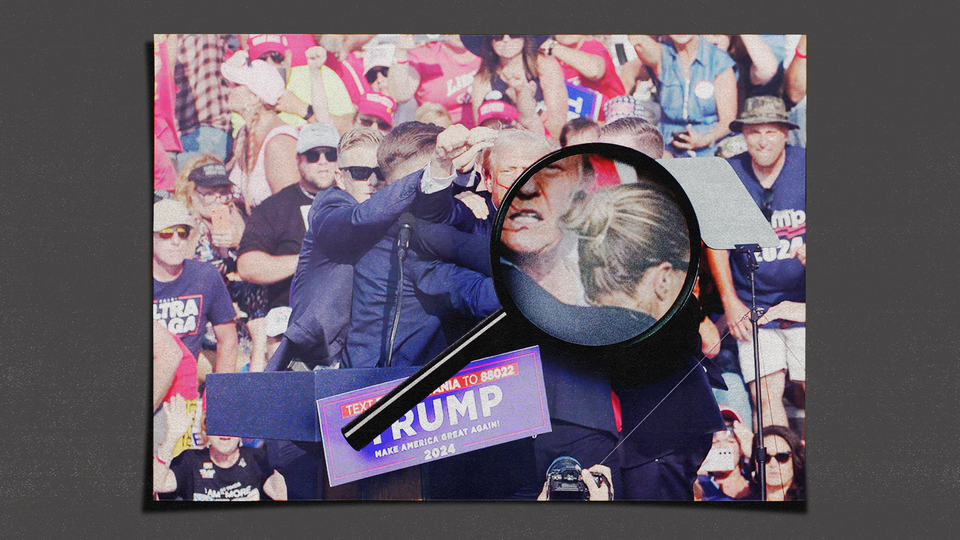The Trump Shooting Conspiracies Outpaced Reality
3 min read
“Joe Biden sent the orders” was the first thing Representative Mike Collins of Georgia posted following the assassination attempt on Donald Trump yesterday. To clarify that he was not being hyperbolic, Collins followed up by saying that Biden should be charged with “inciting an assassination.”
Collins was one of the highest-profile people to boost a conspiracy theory almost immediately after a gunman fired eight shots during a Trump rally in Butler County, Pennsylvania, yesterday afternoon—but he was far from the only one (and not even the sole member of Congress). Within moments of the shooting, some Trump supporters started speculating online about the Secret Service’s complicity. “To deny that something is fishy here is to be willfully blind,” one Instagram meme account with more than 800,000 followers posted in a caption underneath a picture of the grounds where the rally was held. “He was counter sniped within seconds of pulling the trigger. So Secret Service knew he was there.” Elon Musk, who endorsed Trump right after the shooting, publicly wondered whether the Secret Service made a “deliberate” choice to overlook security gaps.
Left-wing accounts posted their own “false flag” conspiracies. The now-famous photo of Trump surrounded by Secret Service agents, pumping his fist with small streaks of blood across his face, was simply too good to not have been staged, some people posted. Semafor reported that Dmitri Mehlhorn, a Democratic strategist, emailed journalists yesterday urging them to consider the possibility that the shooting was staged by the right to make Trump look good. (He later apologized.)
This is almost always how it goes now when something notable happens in the news: It becomes instant conspiracy fodder. Wildfires were actually started by massive laser beams. The rollout of 5G caused the pandemic. Kate Middleton’s extended absence from public appearances earlier this year was because of some sinister royal plot. Taylor Swift and Travis Kelce aren’t actually dating—they’re doing a crossover marketing psyop to boost their profiles (and undermine Trump). These theories are obviously far less pernicious than ones demonizing migrants or falsely accusing people of trafficking children, but they speak to the same idea: Absolutely nothing is ever as it seems.
Online platforms such as Facebook and X have long been accelerants for baseless information and conspiracy theories, but these things aren’t just the product of an information crisis that can be resolved with education and by reining in social media. When conspiracy theories become the default logic for many Americans in understanding all major moments, they suggest a more fundamental breakdown.
In a system that doesn’t resolve social atomization or economic precarity, or mitigate the darkest impulses of technology companies, people will end up trying to make their own order amid intense disorder. It’s not surprising that solutions made inside a Russian nesting doll of messy conditions end up also being very messy. Conspiracy theories become the primary logic that begets more disorder, which begets more conspiracy theories. The cycle repeats itself.



